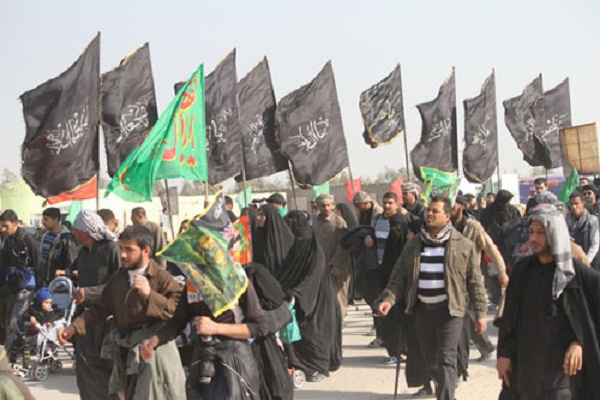"The glorious Arabeen march can be an opportunity for introducing Islam and the region’s history and culture, Mohammad Ali Hamad, chief editor of Karbala satellite network said.
He made the remark at a forum held Monday at IQNA’s pavilion in the 23rd Tehran Press and News Agencies Exhibition.
Hamad said the media should pay close attention to properly conveying the messages, aspects and manifestations of the annual pilgrimage, which is a global march, to the world.
"What is important is that we should speak to the people of the West with their own language and in accordance with their mentality and way of thinking to successfully deliver the message.”
He referred to the movie "Mohammad, Messenger of God” by Syrian director Moustapha Al Akkad as a good example of introducing Islam’s history to the West.

He further criticized Western media and some media outlets in the region for failing to cover the Arbaeen march in Iraq.
This is while they closely follow other events and developments in the region, especially in Iraq, he said.
Their attempt to downplay the millions-strong gathering of pilgrims is unprofessional and causes the public opinion to lose their trust in such media outlets, Hamad added.
The money they receive from certain political and sectarian groups is reason why they do this, he said.
Arbaeen, which is the largest religious gatherings in the world, comes 40 days after Ashura, the martyrdom anniversary of the third Shia Imam, Imam Hussein (AS).
Each year, a huge crowd of Shias flock to Karbala, where the holy shrine of Imam Hussein (AS) is located, to perform mourning rites. Many of them also visit Imam Ali’s (AS) holy shrine in Najaf.
In the past few years, around 20 million pilgrims from all over the world, including Iran, took part in the mourning ceremonies in the Iraqi holy cities marking Arbaeen.
This year, Arbaeen falls on Thursday, November 9.

